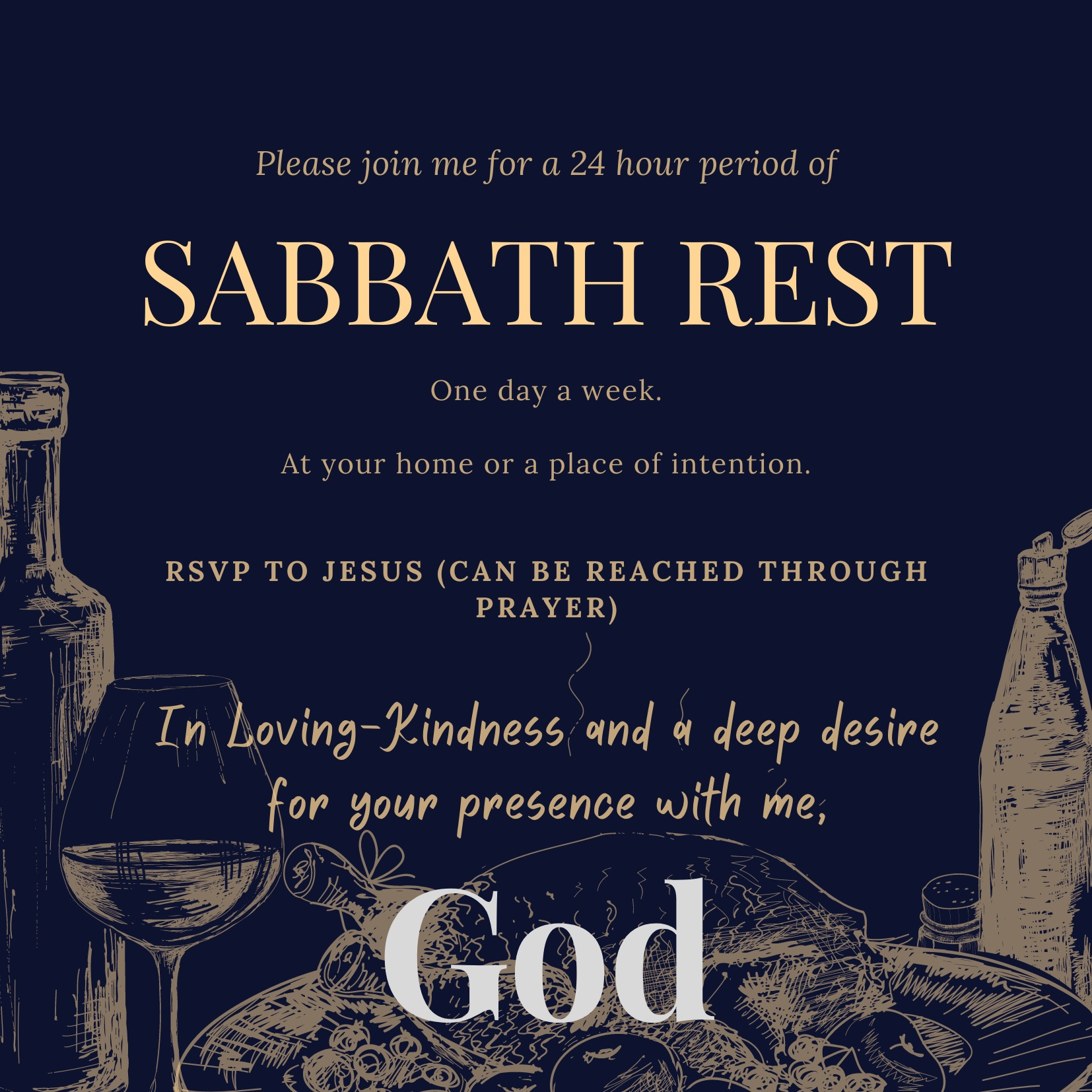1. Preparing for Sabbath
Session 3 • Sabbath • Activation
What is Sabbath?
We find this definition helpful:
“Biblical Sabbath is a twenty-four-hour block of time in which we stop work, enjoy rest, practice delight, and contemplate God. The traditional Jewish Sabbath begins at sundown on Friday and ends at sundown Saturday. In most Christian traditions, Sabbath has been observed on Sunday. The apostle Paul considered one day for Sabbath as good as another (Romans 14:1-17). So the particular day of the week doesn’t matter. What matters is to set aside a twenty-four-hour period and protect it.”
Pete Scazzero, The Emotionally Healthy Leader
If we want our Sabbath to be restful and full of opportunities for contemplation and delight, we will need to have some intentionality around preparing for our Sabbath. Below are some questions for you to ponder as you prepare to engage in a rhythm of Sabbath.
When?
It is a good idea to be as consistent as possible in planning a time of rest. You might decide that you are going to enjoy Sabbath every Saturday, for example. For those who don’t have the same day off each week you might find it helpful to think through your week in advance, so that you can try and plan ahead.
If you don’t have a day off, it is really important for you to sit with your employer and bring this to his or her attention. If this is difficult we would love to help you advocate for this important time of rest.
If you are a single parent, it is extremely important that you prioritize time for yourself. Who could you ask to help you get the rest you need? Is there a family member, or someone from your church community who could champion your Sabbath rest?
Remember that a day off isn’t automatically a Sabbath. There is intentionality around stopping, resting, contemplating and delighting.
Traditionally, the Sabbath was a 24 hour period from Friday evening until Saturday evening. Decide what you time frame is going to be.
Mark the Sabbath on your calendar.
How?
Spend some time considering how long you are going to Sabbath for. Ideally, you will one day be able to enjoy a regular rhythm of having a 24 hour period of rest once a week but if that is currently unavailable to you, then consider some fo these options:
- a 3 hour block
- a Sabbath meal
- a half day
- a 12 hour period
What?
Spend some time in advance thinking about what you are going to do on your Sabbath. Are there any preparations that need to be made? You might want to consider some of the following questions:
- What are the activities that I want to refrain from on my Sabbath?
- What are the sorts of activities that I want to create room for?
- How will this day look and feel different from other days?
- How will my interactions with technology differ on my Sabbath?
- Are there any errands I need to run in advance so that I can rest on my Sabbath - pay bills, do laundry, go grocery shopping, respond to text messages?
- Are there any special food items or materials I want to get in advance so that I can eat something in particular or engage in some form of creative expression?
- If you would prefer not to cook on your Sabbath, what food do you need to prepare in advance?
- If you have children, are there any activities or resources you want to prepare in advance?
You certainly don’t need to have every minute planned, leave room for being slow and spontaneous!
Where?
Spend some time in advance thinking about where you would like to spend your Sabbath. Will you be at home? Will you venture out to a particular place of beauty or inspiration? Would you like to be in nature? You might find it helpful to consider some of the following questions:
- Do I need to clean up my apartment or bedroom in advance so that I can enjoy an environment that is conducive to rest and delight?
- If I want to attend a performance or go to a museum or gallery, do I need to book anything in advance?
- If I am going to travel somewhere, can I plan my route in advance to eliminate any stress on the day?
Who?
You will probably have to experiment with how much time you want to spend in solitude and how much time you want to spend with others. You don’t have to spend your entire Sabbath alone, but it is very beneficial to block off a period of time for solitude. Be intentional about who you invite into your Sabbath rest. If you are going to spend time with others, ensure that they are people who understand the value you are placing on this practice and can support and champion you in it.
Beginning a new rhythm will involve communication with those in your life. Who do you need to tell about this new practice that you are trying to engage with? If you plan on having a block of time when you are intentionally going to power off your phone, how will you communicate that to others in your life?
If you have roommates, you might want to spend some time communicating with them about your hopes for your home environment during this time.
If you have children, you can share with them that you are going to try something new as a family, so that all of you can enjoy being present with one another, having a slow morning and prioritizing rest and fun.
